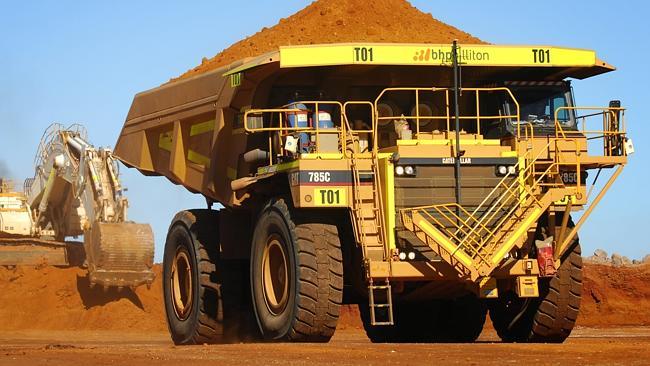Share buybacks allow investors to scoop up a bigger stake
THE reporting season is revealing a conga line of companies that are exceeding analysts’ expectations.

THE reporting season is revealing a conga line of companies that are exceeding analysts’ expectations. But does that make the company better or the analysts worse?
For what it’s worth, while interest rates remain low and corporate profits rise, the stockmarket should do OK. Your only job is to ensure you focus on quality businesses - those with bright long-term prospects - and only buy them when good value is evident.
As companies exceed forecasts with increasing cashflows, investors this year may also benefit from a trend towards paying more dividends and from share buybacks. And while dividends are well understood, buybacks are perhaps a little less so.
In the week just gone, everyone seemed very excited when BHP Billiton announced a first-half profit that exceeded analysts’ expectations by almost $1 billion. Analysts had expected a $6.9bn profit but BHP reported first-half income of almost $7.8bn.
Analysts and commentators waxed lyrical about a dividend “bonanza” and the bringing forward of a share buyback.
And with the share price still where it was 6 1/2 years ago (in July 2007), is the company making the right decision buying back its stock?
Buybacks for BHP would obviously be dependent on the price of iron ore and must compete with other projects the company claims can deliver 20 per cent returns on equity.
Companies that buy back shares are doing the right thing from a shareholder perspective. Acquisitive companies, if disciplined, should always compare the purchase of another business to the purchase of their own shares. Sometimes their shares may be cheaper. By repurchasing shares, the company can permanently increase its return on equity and, depending on the price paid for the shares, increase its value.
When a company uses its retained earnings to repurchase its own shares, it not only increases your percentage ownership of the company, it gives you a tax advantage. Many investors have mentioned to me that rather than see a company buy back its shares, they prefer to receive a dividend and decide whether to buy more shares themselves.
Others have asked whether a dividend reinvestment plan achieves the same thing.
Both are less desirable, however, because both involve the recipient usually receiving a tax liability along with the dividend.
When the company does the buying on your behalf, you may be a lot better off. More often than not, management is reluctant to engage in buybacks, because they can reduce the size of the balance sheet. However, when buybacks are conducted at prices below intrinsic value, they increase the value of the company for remaining shareholders.
Let’s suppose that a company has equity or a book value of $100 million and 100 million shares on issue, and there are 1000 shareholders, each owning 100,000 shares. Now suppose that half the shareholders want out and band together to suggest the company offer to buy back their 50 million shares on the market for $40m and then cancel the shares.
The loyal 500 shareholders who remain will now hold all the shares of the company - 50 million shares and equity of $60m. This is a substantial improvement on the previous position where they owned 50 million shares worth $50m. By taking advantage of a low price, they have increased their own worth.
When a company repurchases its shares at prices that are lower than the equity value of the company, it can increase the value of the business to its remaining shareholders. During the global financial crisis, however, companies were doing precisely the reverse.
A company that sells high and buys low will do the same financially for its shareholders as it would do for itself by engaging in such activity. In 2009, Australian company CSL raised capital of $36.75 per share in anticipation of an acquisition. Ultimately, US regulators blocked that purchase and CSL elected to return the capital to its shareholders by repurchasing its own shares on the market, paying about $31.80.
But just as you personally will suffer if you buy shares for more than they are worth, shareholders of a company whose management engage in the same practice will suffer equally. When a company buys back shares without regard to the value of those shares and pays too much, it can destroy value for remaining shareholders.
For BHP shareholders, there is another benefit of repurchases that might be less subject to precise measurement but is just as important. Buying back shares below market value demonstrates management prefers actions that enhance the wealth of shareholders, rather than actions that expand “management’s domain”.
We may soon find out the true ambitions and motivations of BHP’s management.
Roger Montgomery is the founder of Montgomery Investment Management.



